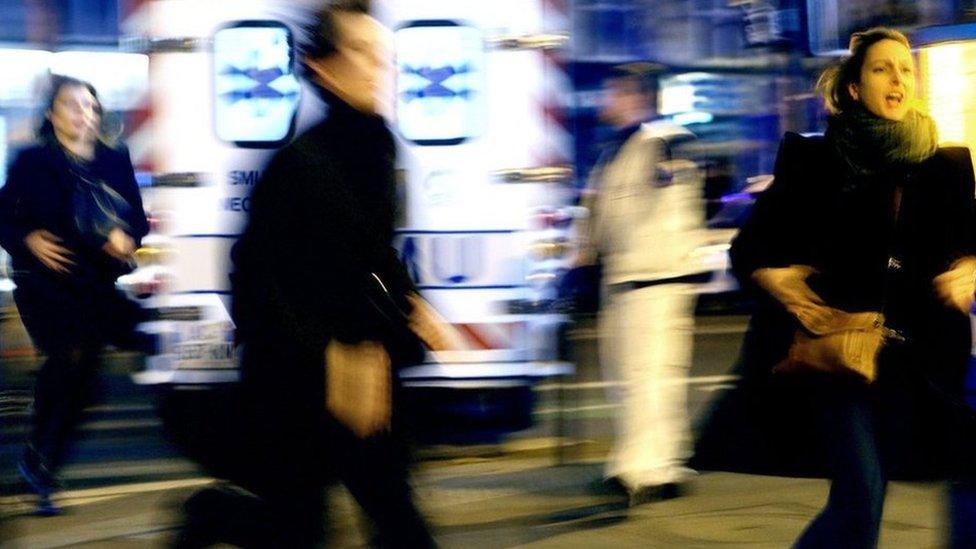Counter-terror training 'should be part of venue licence'
- Published
The security industry is concerned that some venues are not taking up free terror training.
Licensing laws should be changed to force entertainment venues around the UK to undergo counter-terror training, a private security expert has said.
Baroness Ruth Henig told the Victoria Derbyshire programme that some venues did not take such training "seriously".
The former chair of the Security Industry Authority now plans to table an amendment to the 2003 licensing act, to include counter-terror training.
Her comments come nearly a year after 130 people died in attacks in Paris.
On 13 November 2015, gunmen opened fire in simultaneous attacks in restaurants, bars and at a concert hall and suicide bombers blew themselves up outside a major stadium.
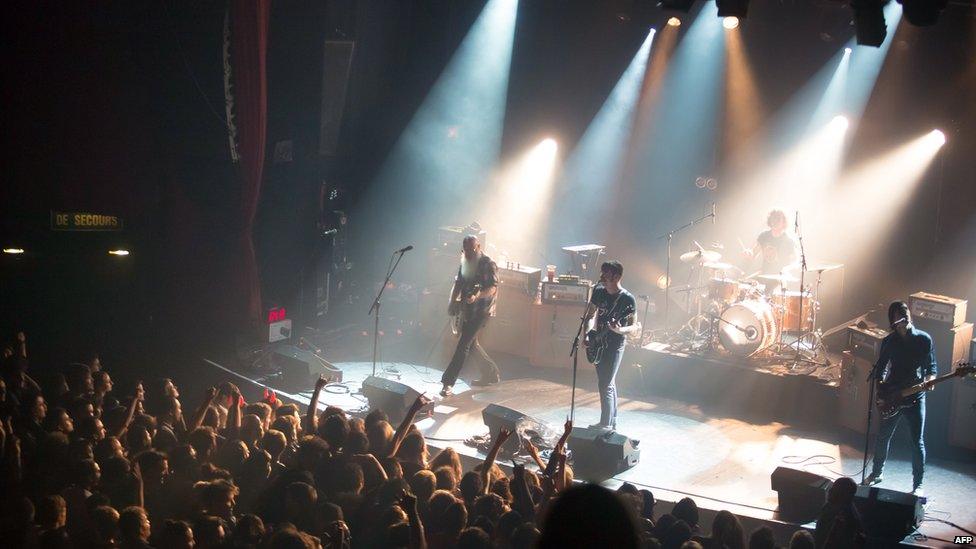
American rock group Eagles of Death Metal perform on stage at the Bataclan concert hall in Paris moments before men with assault rifles opened fire
The Bataclan theatre was playing host to the American rock band the Eagles of Death Metal when three gunmen burst in and shot dead 89 people.
Baroness Henig, who is also chair of the private security company, SecuriGroup, said that "the public should ask questions" about security when they go to venues.
The UK's terror threat is at "severe" - meaning an attack is deemed to be "highly likely".
Baroness Henig said: "There are clearly a number of venues, often the larger venues, I think, but not always, who have airport-style security, who, for example, do have metal detectors, who do have very well-trained security personnel and they top up this training regularly.
"But I think at the other end there is a tail of venues who aren't taking it seriously, we know this from the police, who don't co-operate, who don't take up the offers that are made to them and where I think there are some concerns.
"And the issue is how do you get to that tail of venues who are perhaps not doing as much as they should be about security."
According to a report by UK Music,, external the body which promotes the interest of the music industry, an audience of 27.7 million attended live music events in the UK during 2015.
It meant a total spend of £3.7bn, which was up 7% from 2014.
Baroness Henig added: "I've been looking at the possibility of seeing if I could table an amendment to change the 2003 licensing act in terms of the wording of public protection.
"If it was possible to say public protection and counter-terrorism measures and that would actually potentially make a big difference.
"And there is some legislation going through Parliament at the moment (Policing and Crime Bill, external) and I'm going to see whether I could table an amendment to that effect."
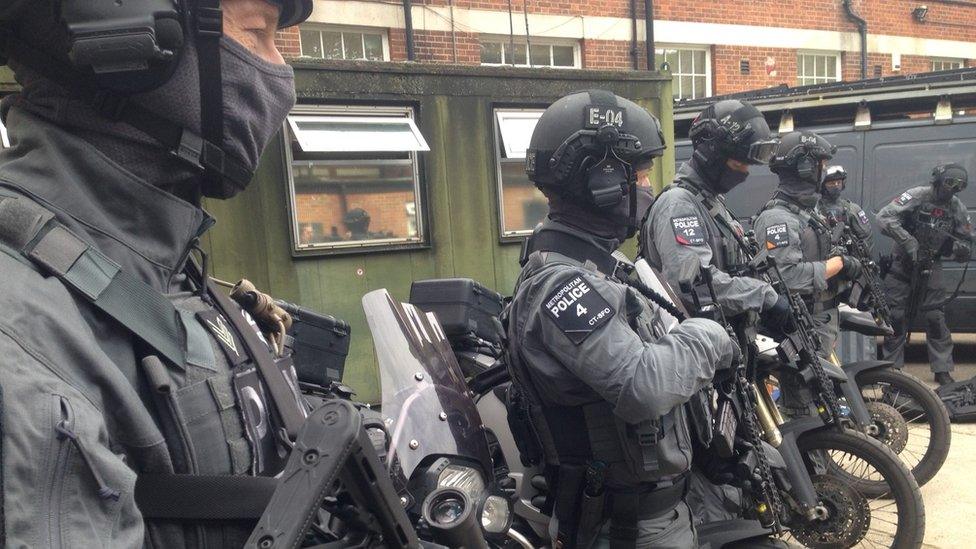
An increased number of firearms officers will be seen at some of the capital's most famous locations
Back in August, London's Metropolitan Police service unveiled an increase in the number of armed officers to reassure the public and deter attackers following terrorist attacks in Europe.
Reg Walker, who is the operations director of the security company Iridium, said money could be an issue for smaller venues.
"I think they're labouring under the misapprehension that it's cost prohibitive and that they simply can't afford it. Margins are extremely tight on small venues.
"Many are struggling financially but they can actually seek advice from police on what they should have in place. And that's absolutely free of charge and smaller venues should be reaching out to the police and vice versa."
Project Griffin is one of the police initiatives set up to help protect, external business and communities from the threat of terrorism.

The aim of Project Griffin is to:
Help understand the threat from terrorism to the UK
Guide individuals on what to do if they find themselves involved in a terrorist incident or event that leads up to a planned attack
Enable people to recognise and report suspicious activity

Forces around the country have Counter Terror Security Advisers who can help advise venues and businesses on the best practices on counter-terror protection.
The police advice is free.

Entertainment venues are seen as potential targets for terrorists
London's The O2 Arena recently increased its security measures with a number of visible and invisible tools, including airport-style security scanners and metal detector wands.
Will Poole works at the Troxy venue in east London and says that "responsible venue operators have the safety and security of all guests and the local residents at our best interests".
He added that the "whole thing about counter-terrorism is that it evolves, depending on the acts that have happened over the last year".
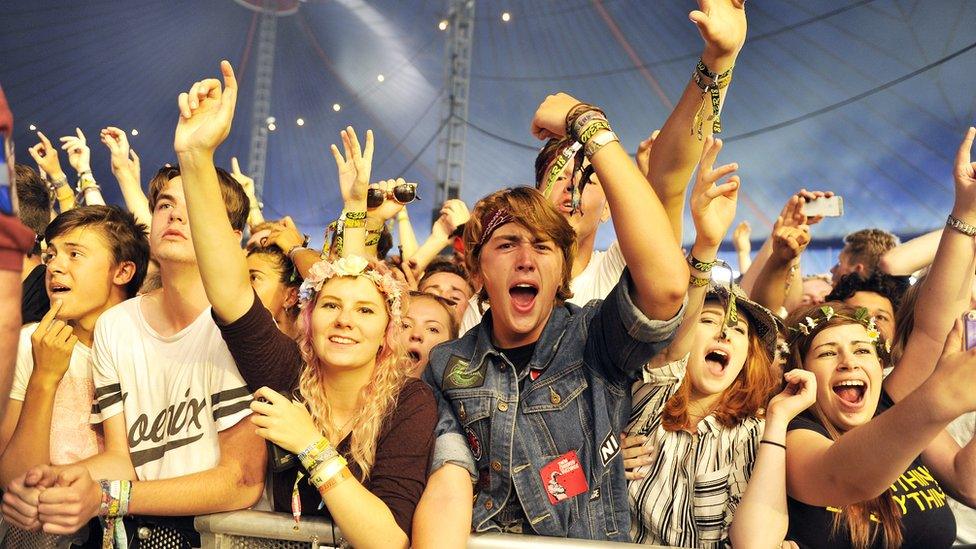
"I do think it comes, sometimes, down to the number of hours you have in the day. We as a decent sized venue still have quite a small team. And smaller venues have even smaller teams.
"And they're probably thinking more about how they are going to run tonight's show and clear up from last night's show and booking staff for next week. And whilst I'm sure that terrorism is on the tick list, whereabouts it fits as a priority sometimes might slip down."
The Victoria Derbyshire programme is broadcast on weekdays between 09:00 and 11:00 on BBC Two and the BBC News Channel.
- Published9 December 2015
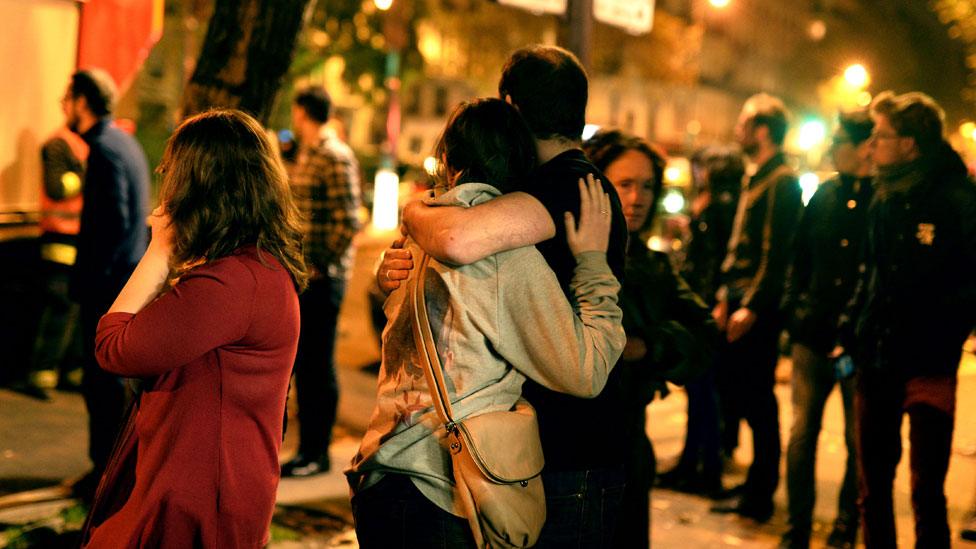
- Published19 November 2015
